LIVE: Voting ends, vote counting begins in Somaliland polls
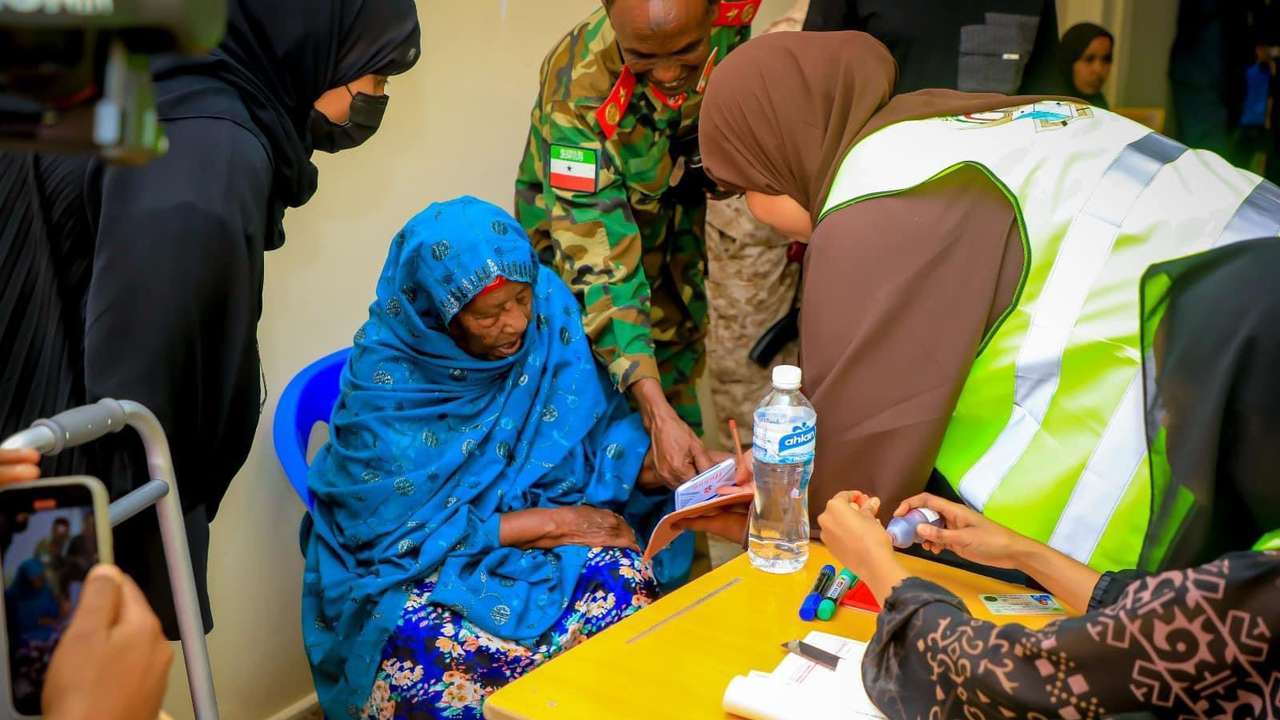
Follow GSW's live coverage of Somaliland 2024, as citizens vote for their next president in an election that will see the incumbent president Muse Bihi Abdi face his main opposition, Mohamed Abdullahi and third candidate Faisal Ali Warabe.
8:21 GMT: Provisional results
The Somaliland National Electoral Commission is expected to release provisional results on 20th November 2024 at 6PM local time.
Meanwhile, Somaliland’s Supreme Court will confirm results as official on 21st November 2024 at 10am local time.
8:19 GMT:
Ballot boxes being delivered to district centres in Somaliland this morning after vote counting.
18:48 GMT: Incumbent president and presidential candidate for the Waddani party speaks
In his speech after voting, President Muse Bihi Abdi said he is ready to accept whatever results emerge from the voting process.
16:57 GMT: Previous highlights
Two Vice presidential candidates from the Waddani Party and the Kulmiye Party exchanged greetings as they walked in to cast votes earlier in the day.
15:36 GMT: Polls officially close, vote counting begins
Polling stations in Somaliland have officially closed at 6 p.m. local time. Voters who were in line at the time of closing will still be permitted to cast their ballots. The vote-counting process has now begun.
15:08 GMT:
Meanwhile, voters earlier expressed optimism about a peaceful election, highlighting the role of the elections in promoting the democracy of Somaliland and positioning it for possible recognition by international bodies.
15:25 GMT: NEC meets international observers
International Election Observers met with the Electoral Commission earlier in the morning.
15:03 GMT: Electoral officers at work
Altogether, 7,500 core staff are working across the over 2,000 polling stations nationwide, with 5000 subordinate staff assisting to ensure a smooth, & transparent elections.
14:41 GMT: Police force rally together to ensure peace
The Somaliland Police Commissioner & NEC Chairman Musa Hassan met ahead of the elections on Tuesday, to offer guidance to police forces and ensure peace and security.
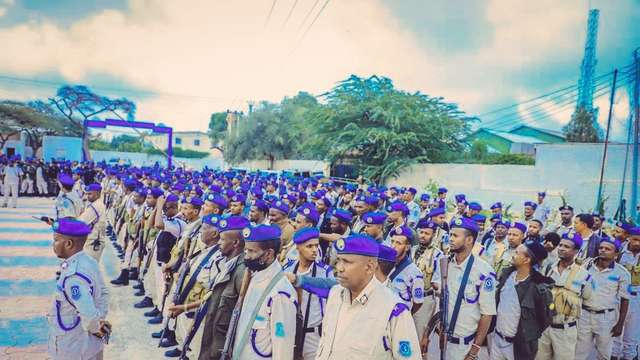
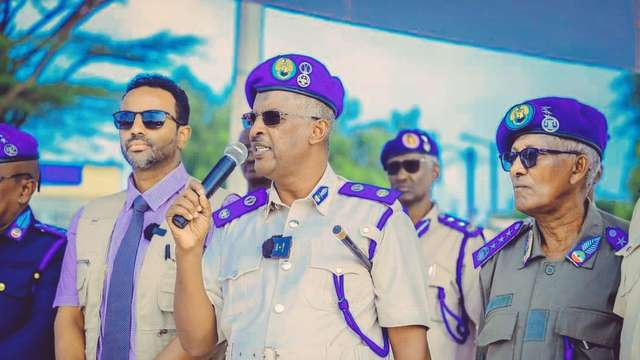
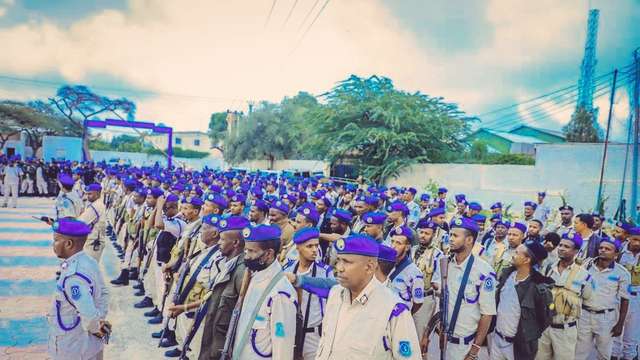
14:09 GMT: Some women were captured with food being carried to some polling stations.
14:00 GMT: Provision made for the sick and physically challenged
Videos have emerged of how some sick persons and physically challenged persons were given an advantage to participate in the voting process at some polling stations.
13:56 GMT: Voting continues in many parts of the country.
13:43 GMT: Electoral officers across several polling stations are captured working
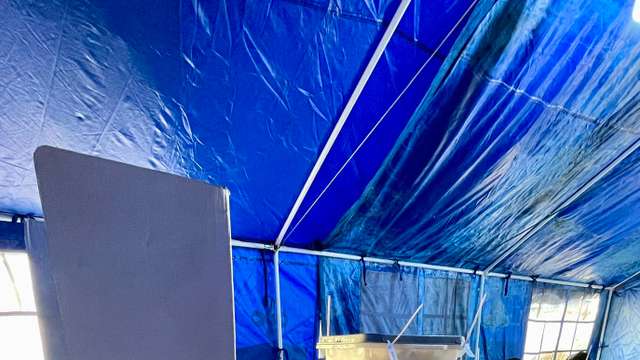
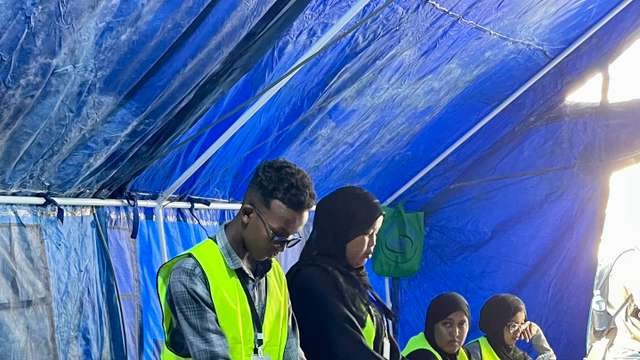
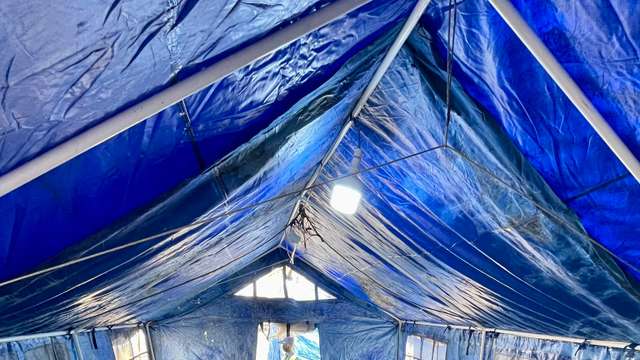
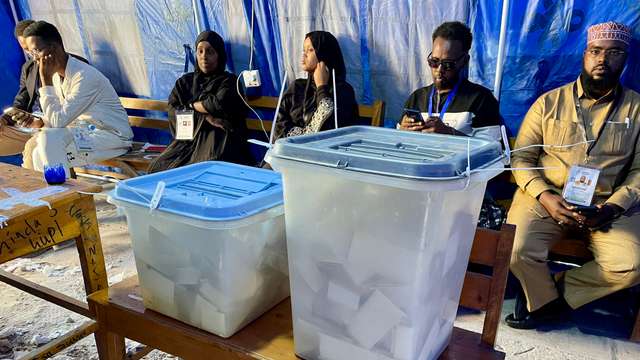
Source: Twitter/@HMATimCole
13:36 GMT: President's mother votes
Mother of President Muse Bihi Abdi earlier cast her vote in a private process.
13:26 GMT: Incumbent President votes
President Muse Bihi Abdi voted earlier in the morning after his facial recognition details were obtained.
13:20 GMT: Voters queue to vote
Long queues of voters are seen at various polling centres across the Republic.
13:17 GMT: Traffic movement curfew
National Chairman of the Electoral Commission announced the implementation of a comprehensive vehicle movement restriction, extending from 12:00 midnight, Tuesday November 12 to midnight Wednesday. The 24-hour curfew exempts vehicles displaying official NEC identification plates, emergency services, medical personnel, and essential service providers carrying special permits.
Polling stations in Somaliland opened early. Voting began at 7 a.m. local time (0300 GMT) and is set to run until 6 p.m. More than 1 million registered voters are expected to participate, according to the Somaliland National Electoral Commission.
KEY FACTS AND HIGHLIGHTS
Who is voting?
About one million citizens are expected to cast their votes at over 2,000 polling stations in the ongoing Somaliland elections.
This is the state’s fourth general election since it declared independence from Somalia in 1991.
While it operates with its own government and institutions, Somaliland is not internationally recognised as a sovereign state, it is still considered a country under the Somalian territory.
The elections which were originally scheduled for 2022 were pushed after legislators extended the ruling President Muse Bihi Abdi’s term by two years.
Voter registration process
The voter registration process requires scanning Iris images (two eyes of registrants), a picture (facial recognition), and demographic data like name, age, mother’s name, date of birth etc. This system was introduced and used for the very first time in 2014.
Candidates
Three candidates from Somaliland's three main political parties, Kulmiye, Waddani, and UCID are contesting in the race.
The ruling Kulmiye (Peace, Unity and Development) Party is being represented by incumbent President Muse Bihi Abdi who is seeking to renew his mandate after seven years in office.
His main contender is former parliament speaker and opposition candidate Abdirahman “Irro” Mohamed Abdullahi of the Somaliland National Party, also known as the Waddani party, which has promised more roles for women and young people in his government.
The third candidate, Faisal Ali Warabe of the Justice and Welfare Party (UCID) is also in the race with his message for a national unity government.
Why the election is important
The elections are a crucial one as the country’s leader and aspiring presidential candidates advocate for the sovereignty and international recognition of Somaliland.
The country hopes to demonstrate its commitment to democratic processes which is in contrast with Somalia’s political and security issues. Since breaking away from Somalia, Somaliland has held regular elections and peaceful transitions of power.
The process which is closely watched by international observers may determine the country’s reputation of stability in the region.
Key issues
Push for international recognition
All three parties are dwelling on their focus on the longstanding quest for international recognition as an independent . While Kulmiye has advocated over the years for support from Western nations, including the U.S. and U.K., his main opponent Waddani aims to extend diplomatic engagement to African countries and other Global South states.
Somaliland-Ethiopia Memorandum of Understanding (MoU)
The recent standoff between Somaliland and Ethiopia over a Memorandum of Understanding (MoU) signed in January 2024, is also crucial in this election. The agreement includes economic cooperation, with Ethiopia gaining access to Somaliland's Berbera port, which some see as a step toward formal recognition by a neighbouring state. However, Somalia has strongly opposed the deal, describing it as Ethiopian interference in Somali affairs. The deal has sparked tension with Somalia and neighbouring countries like Djibouti, who view Ethiopia’s access to Berbera as potentially disruptive to their economic interests
Regional stability and conflicts
Somaliland has suffered internal conflicts over the years. Since February 6, 2023, there has been fighting in the disputed city of Las Anod between forces in the self-declared state of Somaliland and local militia from the Dhulbahante clan in northern Somalia. The city, also known as Laascaanood, is located between Somaliland and Puntland, a nearby semi-autonomous region in Somalia’s northeast. Both regions are laying claim to the city. Thousands have been displaced as a result of the crisis. A peaceful election outcome could strengthen Somaliland’s reputation as a stable democracy, reinforcing its case for recognition. It could also differentiate itself from Somalia, where political unrest is more common